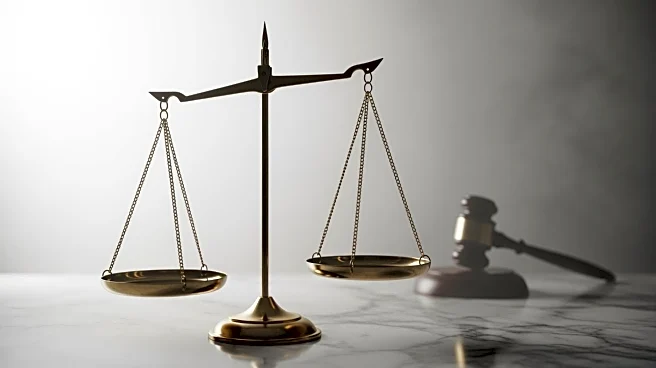What's Happening?
Leonardo Garcia Venegas, a legal resident, was apprehended by immigration agents at a construction site in Alabama despite declaring his citizenship. This incident is part of a broader pattern referred to as 'Kavanaugh Stops,' named after Supreme Court
Justice Brett Kavanaugh. Kavanaugh's recent comments suggested that encounters with immigration agents are typically brief, a view that contrasts with Garcia Venegas' experience and those of other lawful residents caught in enforcement sweeps. Critics argue that the Supreme Court's stance effectively endorses racial profiling, leading to wrongful stops and detentions. The Department of Homeland Security disputes these claims, asserting that no indiscriminate stops are occurring.
Why It's Important?
The issue highlights significant concerns about racial profiling and civil rights violations in immigration enforcement. The term 'Kavanaugh Stops' underscores the perceived impact of Supreme Court decisions on immigration policies, particularly those affecting legal residents and citizens. This situation raises questions about the balance between national security and individual rights, with potential implications for public trust in law enforcement and the judiciary. The controversy may influence public opinion and policy discussions regarding immigration enforcement practices and civil liberties.
What's Next?
Legal challenges are expected to continue, with advocacy groups pushing for court orders to prevent warrantless searches at private sites. The Supreme Court's temporary order allowing racial profiling in certain contexts may lead to further litigation over the constitutionality of these practices. Public and political reactions could shape future policy decisions, potentially prompting legislative or judicial actions to address civil rights concerns in immigration enforcement.
Beyond the Headlines
The situation draws parallels to historical events like the 'Palmer Raids,' highlighting recurring themes in U.S. immigration policy. The association of enforcement practices with specific government officials, such as Justice Kavanaugh, reflects broader societal debates about the role of the judiciary in shaping immigration policy. The controversy may contribute to ongoing discussions about the ethical and legal dimensions of racial profiling and its impact on communities.
















